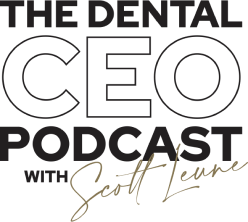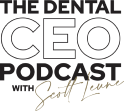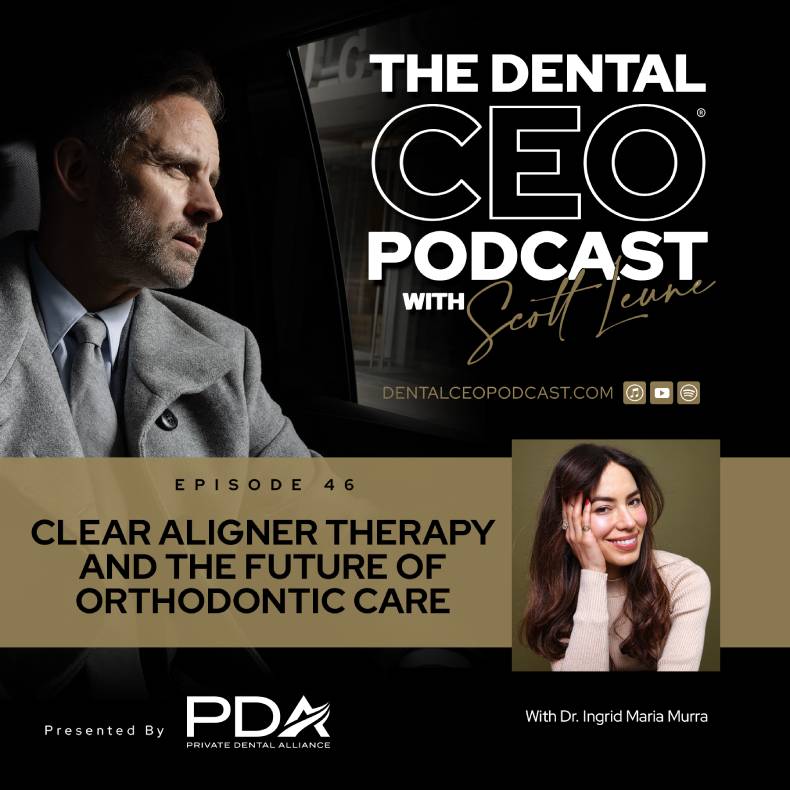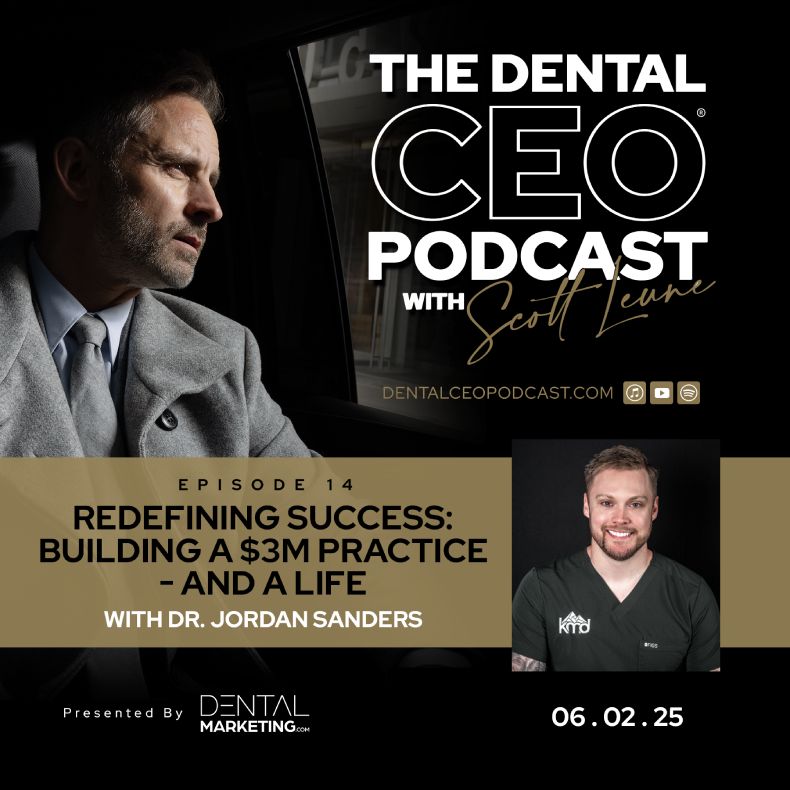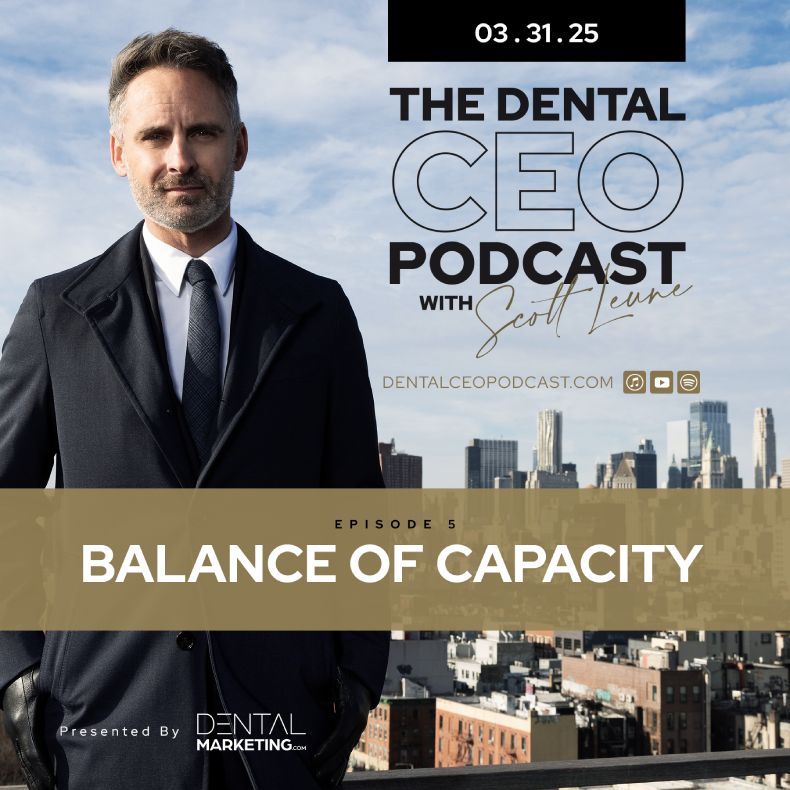Dental CEO Podcast #5 – The Balance of Capacity
In this compelling episode of the Dental CEO Podcast, host Scott Leune challenges the traditional norms of dental practice management. Are you working too hard for too little return? Discover how to break free from the cycle of mediocrity and transform your practice into a high-profit, low-stress environment. Scott dives deep into the balance of capacity, insurance decisions, and fee structures, offering a fresh perspective on achieving success without sacrificing your well-being. Learn how to create a schedule that prioritizes your life, drop low-paying insurance plans, and raise your fees to reflect the true value of your services. Whether you’re a practice owner or an associate, this episode is packed with actionable insights to help you build a career that’s both fulfilling and financially rewarding. Tune in and start your journey towards a more balanced and prosperous dental practice.
Highlights
- Business Laws and Capacity Relationships – Explanation of the inverse relationship between capacity and fee-raising ability and how more capacity = longer time to fill = longer time to justify higher fees
- The Two-Week Rule Study – Research findings on optimal booking timeframes and a statistical analysis with fourth largest DSO on booking patterns
- Traditional vs Alternative Solutions to Overbooking – Contrast between industry standard (expand) vs recommended approach (raise fees)
- The Full Schedule Problem – Why having a completely full schedule is problematic
- Designing Your Ideal Schedule – Exercise in creating a “selfish schedule” that prioritizes personal life
- The Complete Practice Model – the ideal practice combining reduced hours with higher profitability and integrating CEO time for practice development
- The Mediocrity Trap – Critique of settling for “good enough” in practice and life
- Implementation Strategy and Expansion Timing – Guidance on when to expand vs when to optimize current practice and recommendations to achieve high profit margins before adding providers
Speakers
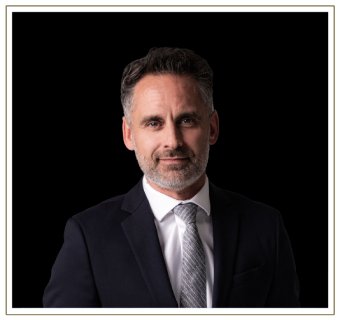
Dr. Scott Leune
Scott Leune, known as The Dental CEO, is one of the most respected voices in dental practice management. From his seminar room alone, he has helped launch over 2,000 dental startups and supported more than 20,000 dentists across practices worldwide. Named one of the 30 Most Influential People in Dentistry, Leune delivers practical, no-fluff strategies that empower dentists to lead with confidence, scale efficiently, and achieve real personal and financial success.
Watch Episode
Read Full Transcript
Scott Leune: So this podcast is sponsored by a company that I have personally used in my own dental practices for quite a while. This podcast is sponsored by dentalmarketing.com and they have agreed to give the listeners of this podcast a free competitive marketing analysis. This analysis is going to show you very clearly how your practice is doing compared to your competitors. It's going to give you the health of your SEO, it's going to give you a website, health grade, a reviews grade, and you'll also see what your competitors are up to. And this helps you know what ad strategy you should have to how clean and effective is your marketing. Right now find out by getting this free and detailed analysis, text the word marketing to 4 8, 6, 5, 9. That's texting the word marketing to 4 8, 6, 5 9, and you'll receive this detailed competitive analysis from our sponsor dentalmarketing.com. Welcome to the dental CEO podcast. I'm your host, Scott Leune, and in today's episode we're going to be diving into the balance of capacity inside of your schedule, your decision to take insurances or not, what fees we're charging, how much we're working, how do we expand this thing, how do we find balance? Are we really in that sweet spot where what we're doing makes sense? Now I'm going to say something pretty direct here.
You probably work too much. You're probably making stupid decisions about taking stupid insurance plans and you are just killing your career. You're wasting your time. You think making more money means doing the same thing faster, squeezing more people in, pressuring my hygienist to do more. You think the only way maybe to be super successful is if I had a new team? If I had a new location, if I did big dentistry, screw that. Screw the old way of doing dentistry. That's too fast and too hard. Screw the assumptions that we don't have the right location or the right team or the right dentistry and fuck PPO plants. I said it and I'm not trying to be dramatic. I actually mean exactly what I said. So let's dive into this in this episode of the dental CEO podcast. If you like what you're hearing on the dental CEO podcast, please take a few moments to leave us a review on your favorite podcast platform and also of course, please make sure that you've subscribed so that you will be notified every time we release a new weekly episode. Thank you.
Alright, so let's start this episode with an analogy. Let's forget about dentistry for just a second. And let's say we're a restaurant. I'm going to try to describe a restaurant kind of like we have dental praxis. So what do we have in this hypothetical restaurant? We have a restaurant that has really good food and the chef is also the owner of the restaurant and the chef actually has to make every freaking meal. And the chef's been through training through chef school, spent a fortune to be a great chef and really does try to make the best plate of food every single time an order comes through. And at the same time cooking the whole all day long trying to make the food, the chefs having to manage employees, manage marketing, hr, legal situations. They're having to deal with the facility and deal with equipment needing, repairing.
They're having to just deal with financial reporting or the lack thereof deal with software issues. But man, they got to make another plate. They've got an issue with the host not showing up to work, but man, they got to make another plate. They've got an issue with patient posting a bad review. Oh, but man, they got to make another plate. And not only do they have to make these plates, they're in some sort of plan that says you can only charge so much for a plate of food, not allowed to charge more. And now this restaurateur, the chef starts getting full tables, man, they're fully booked out one day, two day, seven days a month. Maybe they're booked out on one part of the restaurant, maybe they're booked out on the other part of the restaurant. And now when walk-ins come in or when people call or when people go on to schedule a reservation because they're booked out, they don't want to wait a half an hour, they don't want to wait an hour, they can't find a spot open, they just leave and the chef has no idea how many people are leaving.
And then because these reservations are booked out so far, man, all these customers are no showing. Two weeks later they're not showing up for the reservation. And so the chef had a full book of reservations, but when the day comes, there's empty tables and the chef's like, man, we're not making enough money. I'm working hard, but we just need to bring in more customers. I think we need to just market more, make food faster. I'm just going to do my best, keep these low fees for my food and just try to cram more in. Maybe I'm going to hire some sous chefs as well to help me. Maybe I need to add more tables. Maybe I need to take on the space next door. I'm just going to cram more and more and more and more of the same customers and the same price food in and that's how I'm going to try to be successful.
And lo and behold, they lose their health, they lose their time, they lose their relationships, they lose passion in their life. They lose passion for cooking. They lose passion for their business. They become resentful of all kinds of things in their life. And I think I described a lot of dentists just now, why do we think success comes from more patients at a small fee? Why do we think our schedule should be absolutely full? Why do we think we have to be in network with those shitty insurance plans? Which by the way is just about every insurance plan. Why do we think success comes from taking low fee, high volume dentistry with shitty insurance plans and adding a dentist or two to do more of that kind of dentistry? And why on earth do we want to keep going faster and faster and faster when we can barely make it through the day when we're secretively hoping that the next patient no shows so we can just have a break from this career filled with agony while that's all going on, school debt is skyrocketing and you've got older dentists wondering, now, should I even tell my kids to be a dentist because now they're in a half a million dollars of debt and they're getting out and now this is their life to work really fast and really hard and have compromise in our time and our money and our health and in our passion for our career.
Maybe it's not worth it anymore. Well, let's just put all of what I said aside for a second. Let's just put it on a shelf. Let's look at kind of the business laws at play. Maybe if we peel this back and understand how cause and effect is happening, we can create strategies that actually result in a career that's lazy and easy with dentistry that's high quality and time that's extra and profit that is better than it's ever been, which doesn't even sound possible when you think about it. How do I take your practice as is today and say, okay, let's work less hours per week and let's work slower in the hours you do work. And by the way, let's make the dentistry better and oh, you're going to make so much more money. It just doesn't even sound possible. But it's actually incredibly possible that those of us that build practices this other way are so frustrated by what people say in dentistry and what they agree to and what they think they should do.
It's blind leading the blind so often in dentistry and it's unfortunate. And then of course you've got all the snake oil people that are selling snake oil and the scam artists and the people that claim to be influencers and know everything that are just selling products and services with the promises of less time and more money, but we don't actually get that result and all of that just distracts the dentist from doing the right thing. Alright, so let's dive into some of these laws and these balances that happen. In a way, the more capacity you have, the longer it will take to raise your fees. What I mean by that is if you're open six days a week, it takes you a long time to fill those six days compared to if you're only open three days a week. If you're a restaurant that has a huge dining room with 300 tables, it takes you a long time to fill up those tables compared to if you only had 50 tables.
So if we had this practice that's open five or six days a week, what would happen if we just irresponsibly, just irrationally, just recklessly cut it down to two and a half days? Seven went from five days to two and a half days. Well, what would happen with the schedule? Well, the schedule would condense. We'd get five days worth of patience. Maybe those five days are somewhat full and we'd then have to take those five somewhat full days of patients and cram them into this little box that's only two and a half days big. And what would happen is every day would fill up and more days would fill up, more weeks would fill up more. Two and a half day weeks would fill up and we'd get booked out farther. So that's the first concept, okay, if we have less days open, we will get booked out farther in the future.
That's common sense. That's obvious us. That doesn't make us more money. Not yet. So then what do we do if we're too far booked out? Well, we actually did a study on this. We did this kind of statistical analysis. We partnered all of our practice data with at the time was the fourth largest DSO in the country. We combined our data to try to understand and analyze how far booked out is too far. We actually hired data scientists to analyze the data and tell us with statistical significance, at what point do we start having a shrinkage of success because we're too far booked out. If we put a patient a day out, is that a problem? If we put 'em a week out, if we put 'em two weeks out, put 'em a month out. If we're booked out two months solid, does that mean we're the most successful? Does that mean we're less successful? And here's what happened after about the two week mark. Well, technically it was 10 and a half business days. That was the exact number. So let's call that two weeks. When patients start being pushed out more than two weeks, the no-show rates dramatically increased. The cancellation rates dramatically increased and the production of that practice shrunk.
You see, the first two weeks of patients resulted in mostly a full schedule for two weeks, but the following weeks after that of patients looked full on paper, but when that day came and went and you looked back at it, it was full of holes from NoShow. In other words, when we're booked out one week, we produce more per day than when we're booked out one month because being booked out one month is fake. It's not real. Those people, some of them are not going to show up. So as we study this, we realized at the two week mark we're kind of heading into no-show land. If we allow schedules to get booked out more than two weeks, we're basically filling our schedule with fake appointments. Not all of 'em are going to be real. Not all of 'em are going to show up. So that's a very important concept.
Let's combine that concept with the first thing I said. Take a practice that was open five days a week and now make it open. Two and a half. If we make it open two and a half, they get booked too far out, they get booked past two weeks, they get booked into no-show land. Alright, well what do we do if we're booked out too far? How do we correct the problem to make more money and be more successful in general? Dentistry has said if you're too far booked out, expand. If you're too far booked out, open more days open more hours, open more chairs, hire another hygienist, hire another dentist. Have associates. If you're too far booked out, get bigger, bigger, bigger, bigger. That can be a strategy that makes us more money if we're too far booked out, it can, but it is not the most lucrative strategy and it also doesn't align well with the dentist that wants to have a career with extra time, a career with extra focus.
The other option, if you're booked out too far, that's different from get bigger and expand. The other option says raise our fees if we've got so much demand for our little schedule that we're booked out too far. In essence, the market is telling us we're not charging enough. Just like a restaurant that's booked out with reservations for two months, that's a sign they're not charging enough. The demand says they're worth more than that. They need to raise the cost of their plates, of their food, of their drinks to the point that the demand tapers down and now they're just booked out two weeks, but they're always full. They're always full two weeks ahead. That gives them the highest fee, which is what they earned. That is what the market has said they're worth. Think of physicians. You ever try to call a physician and get in soon?
Maybe you need to see a specialist. I recently had to have my gallbladder out, which is horrible by the way, leading up to that. But I had to call on specialists and I swear every damn time I call a physician, they're booked out two months, three months. It's ridiculous. It pisses me off. They need to be dropping half of those shitty ass plans they're on. They need to be charging more money and they'll still be booked up two weeks, but their profit margins will skyrocket by not taking the shit plans that they're taking that are getting in the way of patients like me with good plans that want to come in now and I had call all kinds of physician offices and when I hear they're booked out two months, I don't go. I call another one and another one and another one. Those doctors don't even know how many patients they could have had on the best insurances show up in their practice.
They have no idea the profit they gave up. Well, that can happen to us. So back to our dental example, when we drop our schedule to two and a half days instead of five, which is extreme, we're just doing it for teaching purposes right now. We're now down to two and a half days. We're going to get way booked out and then if we're way booked out, shit, we can drop Delta. Hell yeah, we can drop Aetna or MetLife. We can drop the lowest paying plans or maybe all of the plans because if we're only going to be a practice with two and a half days of chair time with all this demand we have, we can afford to cut some of the demand away so that the only people that sit in our chairs are people with great paying insurance plans, the kinds of patients we want, the kinds of reimbursement rates we want doing the kinds of dentistry we want.
It's so often that a business that slammed if they were to cut back their capacity a little bit and then dramatically raise their fees, they will end up with a little bit of holes in their schedule with double, triple, quadruple the profit. Kind of like if you pretended like you were an accountant and you could only take on, I'm just going to come up with a number 30 clients. There's the max capacity you could have as an accountant, but let's say 40 or 50, were trying to hire you. You need to charge more money until you've just got the 30 trying to hire you. So that concept is why dentists that have dropped insurance plans or dentists that have cut back a day a week, so often those dentists made more money when they did less dentistry. They made more money because they had higher fees even though they did less dentistry.
Now let's go down another kind of tangent here, a little side road. Should we have a full schedule? Let's analyze that. Should we have a full schedule? I'll tell you that I do not want to have a full schedule. The reason why is this, as long as our schedule is full, we have no idea how many people are trying to hire us. Lemme say that again. As long as our schedule is full, we don't know how big we could have been. Back to the restaurant example, if our restaurant's full, we have no idea. The 20 people that tried to go online and make a reservation saw that there was nothing available and never clicked on anything. We have no idea they tried to make a reservation instead of us being full of a hundred people in our restaurant. We don't know. There were another 20 that tried to get in that day.
We don't even realize that another 30 walked in. They were told it's two hour wait and they walked right out. You see, as long as every table is full, we don't know how many people peaked inside of our business, said shit, they're full and then they left. We don't know that we could have been 150 people that day if we were bigger because our a hundred tables were full. The only way we really know if we captured everything we could have is if we have empty tables every day, meaning there's never a wait if someone walks in, there's always an appointment available online if someone logs in. If we have capacity big enough to always have some openings, we know we're capturing the max capacity or the max demand that we can. What this means in dentistry, for example, in the hygiene side, as long as we always have hygiene openings, we are seeing every hygiene patient we probably could see inherently with the demand that we have, but if our hygiene schedule gets full, we are throwing away growth, throwing away hygiene patients, which is why some people have the strategy that says we're going to be overstaffed a bit in the hygiene department.
So every six months our recall base gets bigger and bigger and bigger and bigger because we captured every patient we possibly could and every patient added in hygiene is a patient that needs dentistry that ultimately fills the doctor's schedule. So what I actually want you to do in this kind of exercise we're doing on this podcast together is I want you to imagine a practice that isn't open five days a week. When is it open? Whenever the hell you want it to be open. You're going to have a selfish schedule that says, shit, I only want it to be open 9:00 AM until two, no lunch five days a week because I want to work out in the morning and I want to drop my kids off and then I want to pick my kids up and I want to play with them and I want to take a walk with my spouse and so I'm just going to work nine to two, five days a week, just as an example.
That's 25 hours a week. Damn, that's not a lot of working time. Let's start there. What's that box look like for you? Selfishly, go ahead and think about this. What is the size of your schedule if you were to be selfish? Of course within reason. Don't tell me you're only going to work two hours a week, right? So within reason, what does your box look like? Let's say it's nine to two, five days a week, man, that's a big change from eight to four, four or five days a week, right? So we've shrunk our capacity. Okay, well then what happens? We get too far booked out, and what do we do when we get too far booked out? We drop insurance plans, we raise our fees because now with the amount of demand we create in the area compared to the amount of seats available, we have the power.
We have earned the right to charge more, and so we raise our fees and how far do we go with that? We keep raising our fees until we have slight openings every day, not full every day, slight openings every day. Okay, well, this actually adds a whole nother layer to think about. If we suck at the phones, then we get less demand coming in. But if we're amazing at the phones, we get more demand coming in. So in other words, practices that are great at phones can drop more insurances, right? They can charge higher fees because they're not throwing away part of their demand. A whole lot of practices don't even answer their phones well. Or if they do answer the phone, they don't say the right things. They're throwing away some of the demand. If we can capture more demand than normal, we can drop even more insurances or if we diagnose more dentistry because maybe we know how to do implants, we know how to do aligners.
If we can diagnose more, we've created more demand. Or if we're better at case acceptance, then patients are saying yes. More often we've created more demand to hit our schedule. So now let's back up again. What does this painting look like that I'm trying to describe to you? I've got a practice that's open with a modest schedule that prioritizes your life and inside of that modest schedule, we have the ability to drop insurances in part because there's more demand than our schedule will allow for in part because we freaking answer the phone in part because we learn how to do enough procedures, we diagnose and in part because we use technology and we use good communication that patients say yes to what they need. And the result of that is a highly profitable practice that is not super busy. We have a few holes in our schedule every day so we can convert same day dentistry if you want.
We're not super busy, are seeing every patient we can with the demand because we haven't gotten too full to block people out. Also, this encourages us to work on the business because if we're only working nine to two, but we want to have a special project, we implement well, shit, we can do that from two to three. Every now and then we have the time for being a CEO in the company. We have CEO time. We're just not cutting teeth on the assembly line of dentistry all freaking day in our own sweatshop that we call a practice. No, we can actually be a CEO. We can do things like implement advanced hygiene protocols. We can create new marketing campaigns. We can build new content. We can renovate the office, we can put AI x-rays in place. We can learn how to do sleep apnea therapy.
We can start doing facial aesthetics procedures with our hygienists and now they're producing three, $4,000 a day and loving their job and patients want to come and see us for facial aesthetics and for cosmetic dentistry. And we can make these changes because we're not chained to the chair four or five days a week with low fees because we take freaking delta trying to just get through the day as best we can. White knuckling our way to some sort of paycheck that is mediocre at best. Mediocrity, what a fucking trap. Mediocrity. Mediocrity is a job that's good enough to keep a marriage barely good enough to stay in for the rest of your life. Health good enough that you're not too painful, you're not dying yet. Relationships good enough, mediocrity is like the living hell because it's the trap we can live in for decades. How many people stay in a dead end job or relationship or situation or have a dead end health, dead end body, dead end passion?
It's just kind of barely there. How many people live that way and how many people live that way forever? What a horrible, that's the worst case scenario is mediocrity. I'd much rather hit high levels of passion and success and happiness or high levels of failure because the high levels of failure will drive me to success and passion and happiness will get me to change. Mediocrity is terrible. If we take that word mediocrity and we try to apply it to dentistry and ask ourselves what does it mean in dentistry, what that means is mediocre fees doing mediocre dentistry. So fees that are just high enough to pay the bills high enough to have our house and our cars and our kids an office. It's good enough that people don't walk out the team that's good enough to get us through the day, the day that's okay enough that we don't go crazy.
We made it. We made it through. And that is what the average, I think the typical dentist experiences. Of course we have good days, but Jesus, do we have bad days sometimes, but what are most days? Most days are days we have to do that. We try to get through and by the end of the day we get home, we need to relax and rest. There was no fueling of a passion in the regular day. I want you to break out of that cage, break those handcuffs that are tied to mediocrity and think out of the box. So to kind of take us back to the bigger picture of this episode, I talked about the connection between the capacity of your schedule, how much available chair time you have connected to the fees you charge. And there's this relationship that says the less time you have available, the more power you can have to raise fees, especially if you market, you answer the phone, you diagnose dentistry and you get case acceptance.
Of course you have more demand there. Yes, if you're too far booked out, yes, you can expand, you could add more dentists and you could add more practices and so forth. And I'm not necessarily against that, but you know what? Let's just go down that path for just quickly, just a second. What should you do first? If you're too far booked out, should you say screw you to delta and drop delta or should you add a dentist? Well, usually I'm the one that says, oh, no, no, no, don't add a dentist yet. Get on a high profit margin model first. Drop the bad insurances, get your fees up to an appropriate level where now you've got a healthy profit margin. Do that first, then expand that with another dentist. Don't take a shitty profit margin, mandatory high volume model and try to grow that with a dentist that's not going to produce as much as you.
I mean, what a disaster. That could be lower fees, lower profit, and now you're going to grow that. No, no, no. How about we keep our practice smaller in volume but higher in profit and we become the CEO we should be. We clean up the practice like we should and we have a high profit model. And then if that's too far booked out, if those two and a half days a week get too far booked out, then there comes a point where we say, you know what? Okay, now we're ready to add another dentist and that dentist will work two and a half days a week, but now we are out of network with everything or with almost everything and we got case acceptance down and we've got great goodwill in the community because we take our time with people. We've never been the sweat shop of dentistry that most of us actually kind of are.
We've never had to be that. So I encourage us to say, let's take the quality path and the profit path first and then expand on that instead of taking this really difficult compromise path and just trying to cram more patients in that with more staff, more providers to try to grow bigger that way to make more money, that is not the easy path to make more money. I hope this topic makes you think, I know some of you don't own practices, but you're working in the practice I'm describing if that's you, no, it doesn't have to be that way for you. You choose what your career is going to be like and everything's possible to you and relatively predictable. So if you don't like what you're doing right now, it's your fault for not doing something different. And if you're ready to do something different, you need to go learn how to do it and you need to just do it. Learning how to do it is half of it and then just doing it is the other half. Go learn how to ride a bike theoretically first. Okay, I got to have balance, I got to pedal, I got to do this and that. But then you get on the damn bike and start pedaling. The other half of learning is when you start pedaling and you solve some of the riddles. Of course you can come to one of my seminars. We've got these intense training seminars where we teach how to do all this stuff. And I'm sure most of y'all listening to this have been to one of my seminars. But if you don't have a practice, maybe this is a moment in your life where the universe is telling you, Hey, you should probably think about it. If you have a practice and you're stuck in mediocrity, when are you going to start the next chapter that says, alright, let's maybe do a reset.
Let's clean up the financials, let's clean up the dentistry, let's clean up our fees. Let's stop working to death. Let's actually get selfish and lazy so that we have the time and the focus to build quality and profit. Which I know sounds backwards, but it's not not. Alright, I hope you've enjoyed this episode of the Dental CEO podcast. We've got a whole lot more episodes coming and every single one of 'em is going to dive into either different components of the business side of dentistry or sometimes we're privileged and honored to be interviewing people outside of dentistry such as, for example, in the first episode we interviewed Damon John from the Shark Tank, and there's so many cool things to learn outside of dentistry and it's so inspiring sometimes to listen to those people have accomplished such greatness in business. And so I hope you've subscribed. I hope this is now a habit in your week of getting value, getting learning, making you think, because a little drip of value every week ends up nourishing you tremendously well in your career. I hope we're one of those drips for you. Thank you again, and join me next time on the Dental CEO Podcast.
SUBSCRIBE TODAY
Subscribe now and receive a 25% discount code for Scott Leune’s upcoming events. Plus, get podcast episode alerts and exclusive subscriber perks.
